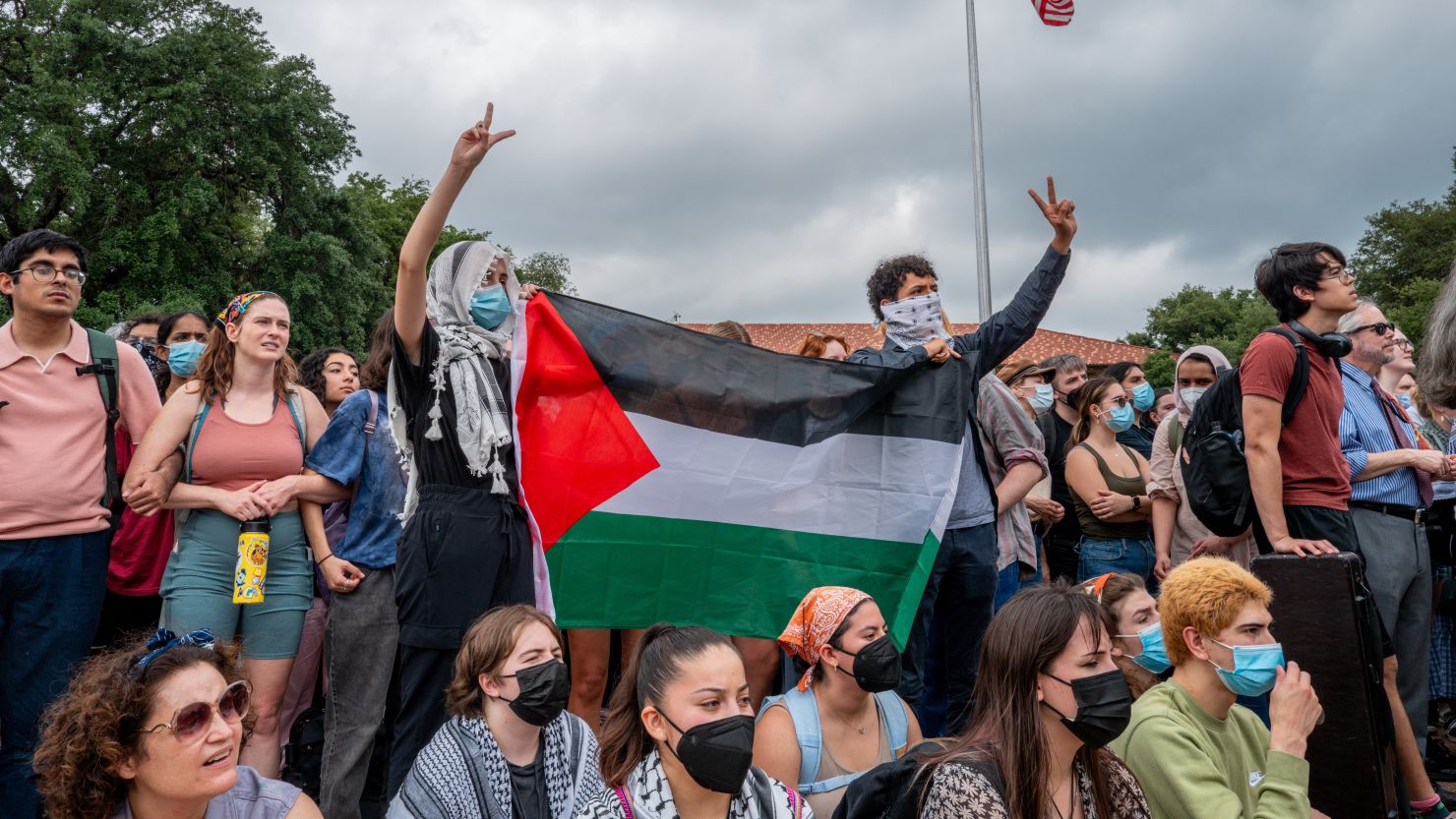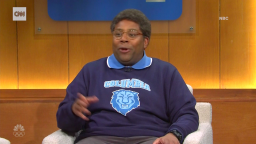Arianna Smith is juggling a lot right now.
Smith is editor-in-chief of The Lantern, Ohio State University’s student-run newspaper, which has scrambled in recent days to cover pro-Palestinian protests roiling the campus.
It’s also finals week, and in the coming days the newspaper’s staff will transition to the next year’s staff. But the news doesn’t account for exams.
“We have had reporters and editors drop everything they are doing [to cover the story], even though they have finals that they should be studying for,” Smith told CNN.
As universities across the country crack down on demonstrations over Israel’s military actions in Gaza and police arrest hundreds of protesters, student-run newspapers have quickly become an essential source of news coverage for both the campus communities and nation at large, providing crucial transparency and scrutiny of authorities.
And, for many of these student journalists, it’s becoming a seminal moment in their nascent careers.
“It’s so important to have journalists that care about being objective, and to have journalists that really know the power that their writing has,” Smith said of her newspaper’s reporters.
When demonstrations broke out on the Columbus campus this week, resulting in multiple arrests, the Lantern’s staff reported from the protest scenes, detailed actions of the police, and investigated Ohio State University policies barring encampments.
“We’re not only covering the protests, but we’re covering and getting the opinions from these people that are involved in this protest,” Smith said. “And we’re also making sure that we’re analyzing the legalities behind all of these policies that the university is enforcing.”
At the University of Southern California, nearly 100 people were arrested this week as protests swelled on campus and university leaders imposed restrictions on demonstrations.
Anjali Patel, editor-in-chief of the university’s newspaper, The Daily Trojan, immediately recognized the student-led publication had an advantage over the national press as they raced to cover the story.
“Given that we’re student journalists, we know the campus and the students here. That gives us a different angle than professional news outlets,” Patel said. “We’re also completely student-led, so the way that we approach work and reporting is different, but I think that’s to our advantage.”
The tension at USC has been boiling since administrators canceled its Muslim valedictorian’s commencement speech — and, on Thursday, the main graduation ceremony — citing safety concerns. As pressure mounted on campus, the newspaper mobilized a handful of writers who worked together to cover the protests. But, as police were deployed on campus, The Daily Trojan increased the number of assigned reporters to cover events.
When officers moved to make dozens of arrests Wednesday at a protest encampment, it was “all hands on deck,” Patel said, adding that The Daily Trojan deployed at least five photographers and eight other staff members to cover the demonstrations.
These young journalists, while juggling classes and the stress of exams, are also intimately involved with the student community, translating the student body’s mood on their campus for the rest of the nation.
At the University of Texas at Austin, dozens of protesters were arrested Wednesday after pro-Palestinian demonstrators were met by state troopers “in full riot gear with batons,” Amelia Kimball, associate managing editor of The Daily Texan told CNN.
Kimball reported that there was a “physical clash” between students and police on campus with numerous students taken into custody and “put in squad cars.”
The arrests came as Texas Governor Greg Abbott warned that “antisemitism will not be tolerated in Texas” and called for students participating in the protests to be expelled.
“I think there’s a real feeling of betrayal on campus and I think there’s a lot of anger [after students were arrested],” Kimball told CNN’s John Berman.
“State troopers were on campus before students even began to gather,” Kimball added. “And so things just escalated far beyond what students had expected at all, and so yeah, I think students feel betrayed by the university and by our state government.”










